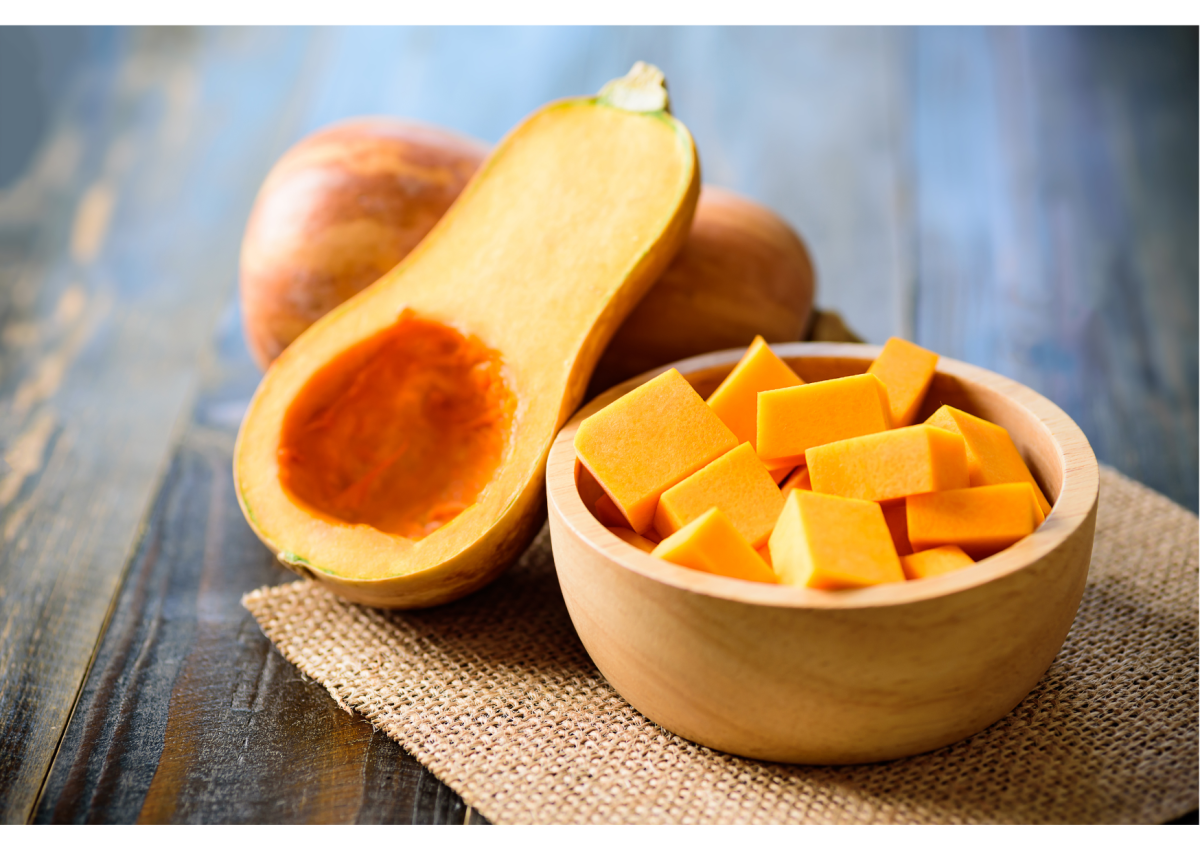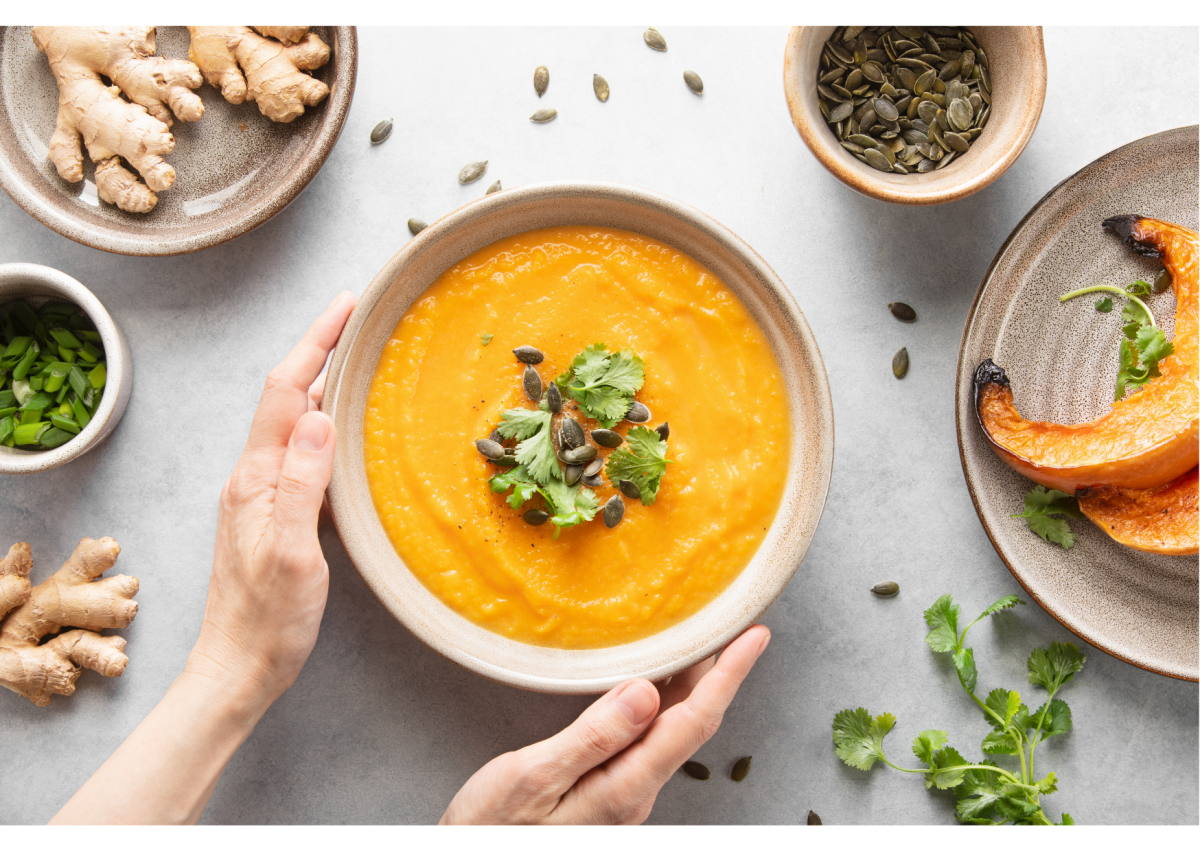Does squash cause gas? Different types discussed + safe recipes
- Low FODMAP Recipes
This post will clarify the question, “Does squash cause gas?”
Squash is a nutrient-rich vegetable enjoyed in various culinary creations, but having digestive discomfort afterward might discourage you from eating it.
Read the article to learn how to avoid excessive gas afterward and try FODMAP-friendly recipes that will not upset your stomach but satisfy your taste buds.

What is squash?
Squash are plants from the gourd family (Cucurbitaceae). They grow in various regions worldwide, including North and South America, Europe, Africa, and Asia (1).
Common types of squash include summer squash, such as zucchini and yellow squash, and winter squash, such as butternut squash, acorn squash, and pumpkin.
Squash are popular due to their versatility and usefulness in cooking. We can prepare them in various ways – in soups, wraps, and desserts.
Does squash cause gas?
Squash can cause gas in some individuals (such as people with IBS), but that depends on the type of squash. The reason for gassiness is the FODMAP content.
The extent to which squash causes gas can vary from person to person.
To learn about FODMAPs and the low FODMAP diet, check out our article: The low FODMAP diet.
As not all types of squash cause gas, we will look at specific types of this vegetable.
Does yellow squash cause gas?
Yes, yellow squash can cause gas due to fructose, a type of FODMAP. However, 75g was tested low FODMAP and should be well tolerated (2).
Yellow squash is a versatile vegetable that we can incorporate into various dishes – soups, stews, stir-fries, and salads.
If you like the taste of yellow squash but find it hard to digest, try a low FODMAP recipe like this: Potato and Yellow Squash Soup.
Does butternut squash cause gas?
Butternut squash is a high FODMAP vegetable due to galactooligosaccharides (GOS) and mannitol, which can cause gas (2).
Including small quantities in your meal – 45g per portion- should not cause digestive symptoms as that is still low FODMAP (2).
Pair butternut squash with low FODMAP vegetables, such as carrots and potatoes, and cook delicious (and FODMAP-friendly) creamy soup.
Another idea for including a small quantity of this vegetable is this recipe: Creamy Butternut Squash Mac and Cheese.

Does spaghetti squash cause gas?
Larger portions of spaghetti squash can cause gas, but 75g is low FODMAP and should not cause gas (2).
Spaghetti squash often substitutes traditional pasta in dishes like spaghetti squash “noodles” with a sauce.
If you want a FODMAP-friendly spaghetti squash recipe, try Tomato Basil Spaghetti Squash with Pumpkin Seeds.
Does acorn squash cause gas?
Acorn squash can also cause gas due to fructans, a type of FODMAP. However, 59g is considered low FODMAP and should not cause you gas (2).
Acorn squash has a slightly sweet and nutty flavor with a creamy texture when cooked. One of the great ways of preparing this squash is stuffing it.
To get inspiration for preparing a low FODMAP meal with acorn squash, check out this recipe: Acorn Squash Stuffed with Herb Quinoa.
Does delicata squash cause gas?
Delicata squash can cause gas as it contains high amounts of fructans and GOS, but portions up to 49g should be well tolerated (2).
Delicata squash is also called sweet potato squash due to its sweet flavor.
You can bake delicata squash and add it to your salad or have it as a side dish. Here is the recipe to help you prepare delicata squash: Low FODMAP Roasted Delicata Squash.
Can squash cause stomach problems?
Yes, squash can cause stomach problems in some individuals, but that depends on the type of squash, the quantity, and other ingredients in the dish.
We have already discussed specific squash portions you should tolerate well without stomach problems afterward.
Luckily, two types of low FODMAP squash should be easier on your gut, and those are (2):
- Pattypan squash
- Kabocha
Use those squashes in the soups, stews, risottos, sautees, or stuffed.
Health benefits of squash
Although you have negative experiences with squash, it does not mean you have to avoid it. Include it in your meals in discussed portion sizes.
Squash is a nutritious vegetable. It is a source of potassium, vitamin A, and vitamin C (3). Besides that, it is rich in antioxidants called carotenoids and polyphenols (4).
Antioxidants neutralize free radicals, which cause oxidative stress. Moreover, antioxidants support our immune system and prevent inflammation.
Summary
Squash can cause gas in some people (such as people with IBS) due to FODMAPs.
Some types of squash contain fewer FODMAPs than others, and if you find a specific type of squash that causes digestive discomfort, try smaller portions or another type of squash.
Squash is rich in antioxidants, which can promote health in different ways. So, rather than avoiding squash, try the FODMAP-friendly recipes linked above.
Written by Barbara Lešnik, Student Dietitian, reviewed by Kirsten Jackson, Consultant Dietitian BSc Hons, RD, PG Cert